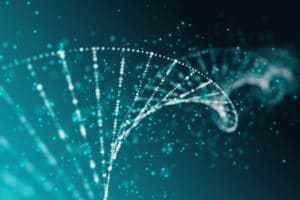A person has to take affirmative steps to have their DNA removed from the database if they are not convicted of a crime.
In California and across the United States, DNA is an important tool in fighting crime. It can be used to solve cold cases, track leads on active cases, or even exonerate people who were wrongfully convicted of crimes. Yet the use of DNA to solve crimes can be controversial. Your DNA contains a significant amount of private information, mapping out who you are and where you came from — which may make DNA databases vulnerable to abuse.
That is what two groups who are currently suing the California Department of Justice (DOJ) have alleged about the state’s use of DNA. In California, a 2004 law was passed after voters approved Proposition 64. The law requires law enforcement to take a DNA sample via a cheek swab for all persons arrested on suspicion of committing a felony offense. The DNA sample, which is taken when a person is booked into jail, is then entered into a DNA database, the national Combined DNA Index System, or CODIS.
Under the law, if you are not convicted of a felony offense, you have the right to have your DNA removed from CODIS. For example, if the charges were dropped after your criminal defense attorney San Bernardino, CA had evidence suppressed, you can move to have your DNA expunged from the database. Similarly, if you go to trial and you are acquitted of the charges, you can have your DNA removed. However, this process is not automatic. It requires a person to take the additional step of filing a request to have their DNA removed. That obligation is at the center of the lawsuit.
The Center for Genetics and Society and the Equal Justice Society filed suit against the DOJ, arguing that this law violates Californians’ right to privacy in their DNA. In addition, the lawsuit alleges that the law has a bigger impact on poor people and people of color, who may not be able to access the resources to request to have their DNA removed — or even know that it is an option.
Statistics available on the DNA database demonstrate that few people ever request to have their DNA removed from CODIS in California. Over a 10 year period, there were 750,000 DNA samples that were eligible to be removed from the database. Only 1,510 people requested to have their DNA removed in this time. Of those requests, 1,282 were granted. This shows that the vast majority of people either do not know that having their DNA removed from the database is an option — or do not undertake the process, perhaps because it is too complex.
Having your DNA remain in the system after you have been acquitted of a crime increases the likelihood that you may be implicated in a separate crime. In addition, as an experienced criminal defense attorney San Bernardino, CA can explain, law enforcement continue to use familial DNA searches to solve crimes, such as in the case of the Golden State Killer. Removing your DNA from CODIS can help you to protect your privacy and prevent yourself or your family members from becoming targets of criminal investigations.
At the Chambers Law Firm, we are a full-service criminal defense practice. We represent clients throughout the criminal justice process, including offering advice on what comes after a plea deal, dismissal of charges, guilty verdict or acquittal. To learn more about how we can help you, contact us today at 714-760-4088 or dchambers@clfca.com. Initial consultations with a seasoned criminal defense attorney San Bernardino, CA are always free of charge.





